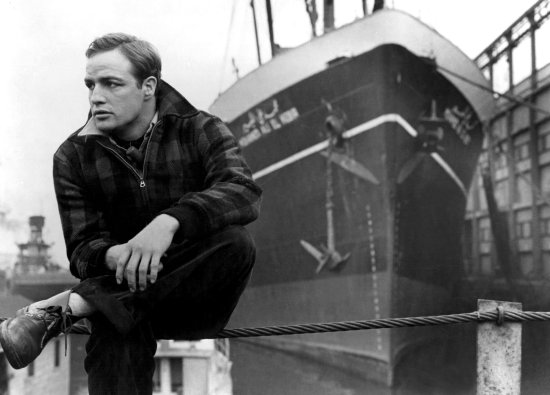
Elia Kazan is famous for lots of things: for being a founder of the Actors Studio, for his collaborative friendships with Tennessee Williams and Arthur Miller, for having discovered James Dean—and for going before the House Committee on Un-American Activities in 1952 to inform, as a former Communist Party member himself, against eight of his old Group Theatre colleagues. Unironically, On the Waterfront is itself a story about informants: one of its writers was Budd Schulberg, who’d also given names to HUAC. Operating on shaky logic, he and Kazan intended On the Waterfront as a justification for their actions. But how do you weigh the damage wrought by Kazan against the fact that this film, filled with staggering, deeply felt performances, changed the landscape of film acting forever? Method acting historian Isaac Butler has written of On the Waterfront, “Its characters aren’t always sure how—or whether—to express themselves. Instead they falter, they pause, they stammer and trail off, they allow their use of props to convey their hidden feelings and desires.”
[time-brightcove not-tgx=”true”]
Marlon Brando plays Hoboken dockworker Terry Malloy, a man who owes his livelihood to crooked mob boss Johnny Friendly (Lee J. Cobb); Terry’s older brother Charley (played, with a heartrending jumble of gruffness and tenderness, by Rod Steiger) is Friendly’s right-hand man. Then Terry falls for Edie (Eva Marie Saint, somehow both ethereal and earthbound, and extraordinary), whose brother, Joey, was killed by Friendly and his goons on the night before he was set to testify against them. It was Terry who helped set Joey up, and Brando maps his character’s guilt in a performance that’s both subterranean and explosive. In one of the movie’s subtlest and most affecting scenes, Edie drops one of her knit gloves, and Terry picks it up, fiddles with it, smooths out its slender fingers before slipping it on his own meaty hand. It’s a gesture that speaks of cautious desire, that tells us much of what we need to know about this man who yearns for intimacy but feels he doesn’t deserve it. Could another actor, with another director, have brought this moment to life? Who can say? All we have is the evidence at hand, a film made, at least in part, on the broken careers of others, but also one that makes us feel more alive.